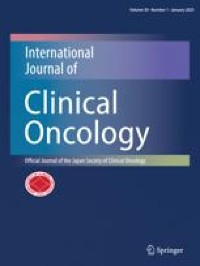Abstract
Background
The long noncoding RNA (lncRNA) nuclear-enriched abundant transcript 1 (NEAT1) has been implicated in many tumors risk including gastric cancer. However, the association of single nucleotide polymorphisms (SNPs) at NEAT1 with gastric cancer risk has not been studied. The aim of this study was to investigate the association between SNPs in NEAT1 and gastric cancer susceptibility.
Methods
In this study, four SNPs in lncRNA NEAT1 were selected for genotyping in 484 gastric cancer patients and 484 controls in Chinese Han population. Quantitative real-time PCR (qRT-PCR) was conducted to evaluate the potential function of rs3825071. Attributable risk percentage (ARP) and population attributable risk percentage (PARP) were used to assess the epidemiological effect.
Results
In the dominant model (GG), the genotypes AG + AA of rs3825071 and rs7943779 were associated with an increased risk of gastric cancer (OR = 1.72, 95%CI = 1.27–2.32 and OR = 1.63, 95%CI = 1.19–2.22). Individuals harboring ≥ 3 risk alleles have higher risk of gastric cancer (OR = 1.88, 95% CI = 1.26–2.80, P = 0.002). ARP and PARP associated with gastric cancer were 42.53% and 10.88% for rs3825071, and were 33.78% and 6.26% for rs7943779, respectively. Furthermore, compared with the genotype GG of rs3825071, the genotypes AG and AA had higher expression of NEAT1.
Conclusions
We found that the genetic variations in NEAT1 were significantly associated with risk of gastric cancer. The G > A variant of rs3825071 may confer gastric cancer susceptibility by changed biological effects to increase the expression of NEAT1.




Δεν υπάρχουν σχόλια:
Δημοσίευση σχολίου